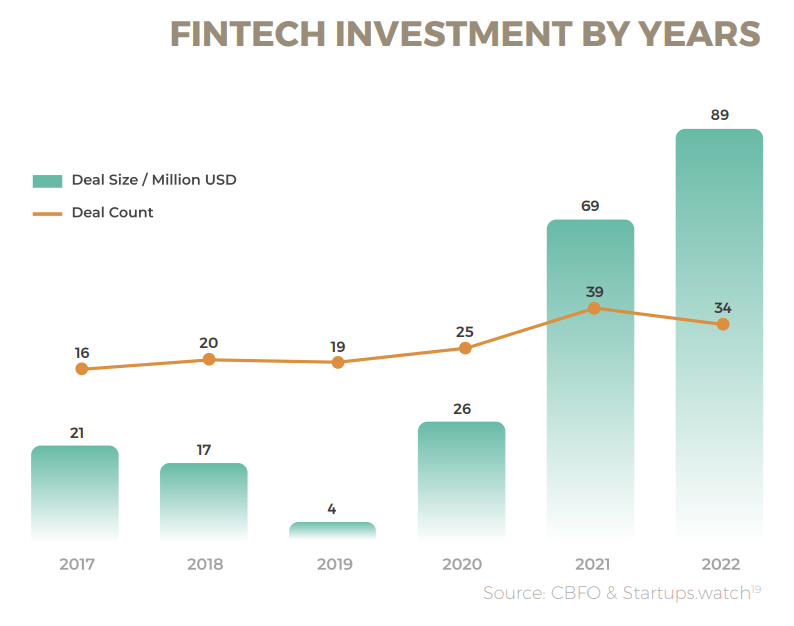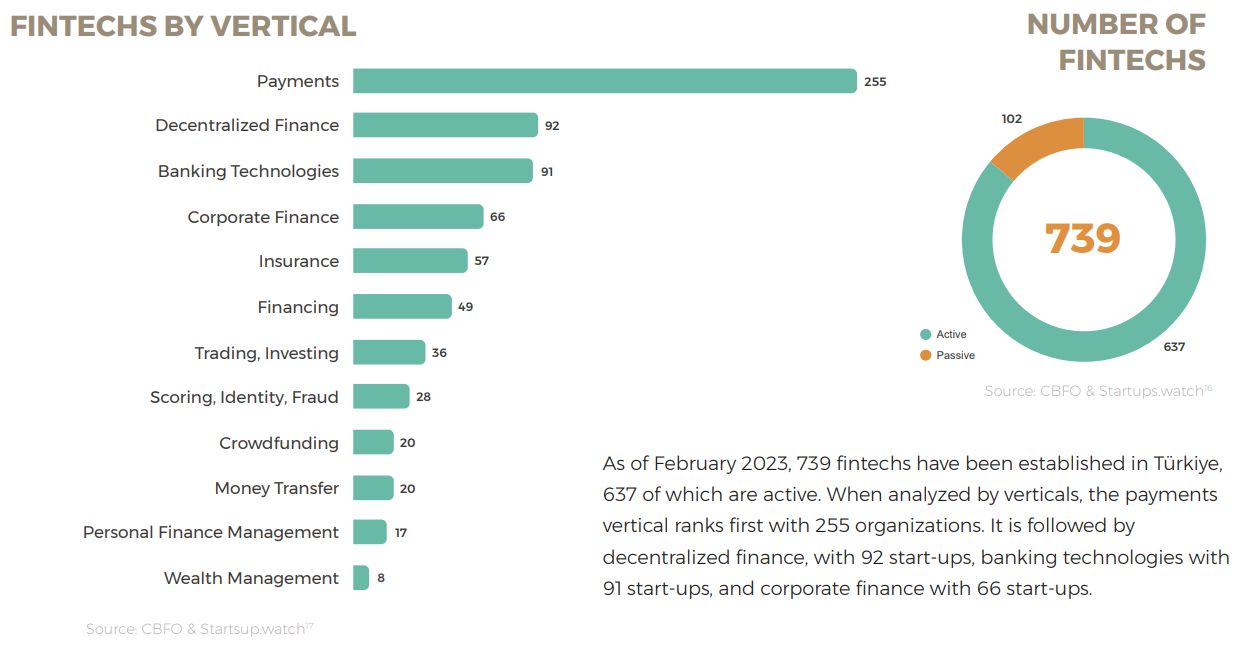2022 was a record-breaking year for the Turkish fintech industry, which recorded increased innovation, rising fintech investments and continued effort from the government to foster the development of the sector. Moving forward, more initiatives will be hitting the market, paving the way for greater maturing and growth in the sector, a new report by the Finance Office of Presidency of Turkey says.
The Türkiye Fintech Guide, published on March 15, 2023, provides an overview of the domestic fintech landscape, sharing key regulations and requirements fintech companies must comply with and outlining the most critical considerations fintech entrepreneurs and investors must be aware of when contemplating entering the market.
Turkey’s fintech sector
According to the report, Turkey’s fintech sector has grown significantly over the past years, on the back of a strong banking sector and advanced technological infrastructure. This landscape has paved the way for an increase in the rate of digitalization and accelerated the development of the fintech startup ecosystem, the report says.
In 2022, fintech funding activity in Turkey defied global trends by continuing an uptrend that started in 2020. Total fintech investment reached a new record of US$89 million, up by 30% from 2021’s previous record of US$69 million and by 242% from 2020’s US$26 million.

Fintech investment in Turkey by year, Source: The Türkiye Fintech Guide, Finance Office of Presidency of the Republic of Turkey, March 2023
As of February 2023, Turkey counted 637 active fintech companies, the report says. Payment was the biggest fintech category with 255 companies, followed by decentralized finance (DeFi) with 92 ventures and banking technology with 91.
Over the past five years, an average of 76 fintech startups have been established in the country on a yearly basis. The Finance Office expects this number to rise significantly over the next few years amid new fintech regulations and supportive initiatives.

Turkey’s fintech companies by vertical, Source: The Türkiye Fintech Guide, Finance Office of Presidency of the Republic of Turkey, March 2023
Turkey introduced its first fintech regulation in 2013, and established in 2020 the Istanbul Financial Center (IFC). The financial hub, which focuses on fostering the growth of banking, insurance, green finance, fintech and Islamic finance, will include a regulatory sandbox regime that will allow businesses to test out innovative fintech solutions, the Finance Office said. It will also feature a fintech-focused technopark called Istanbul Finance and Technology Base that’s scheduled to start operating soon.
In tandem, the government has been working on a national fintech development plan for the development of the Turkish fintech industry for the years 2023-2025.
According to the Finance Office, the so-called National Fintech Strategy Document is nearing completion and will be centered around promoting the Turkish fintech ecosystem, solving real business challenges faced by the finance sector, and further adjusting the regulatory framework to foster fintech development.
Fintech regulations in Turkey
These developments will build on a fructuous year 2022 during which regulators introduced a slew of rules targeting fintech companies and continued to pursue fintech opportunities.
In particular, the beginning of 2022 saw the Digital Banking and Service Model Banking regulation come into force, setting out the principles applicable to branchless banking and digital banks. According to the Finance Office, four digital banks have received regulatory approval so far.
The year also saw the release of rules and principles regarding open banking, payment services data sharing, and API usage, in addition to the launch of the Open Banking Gateway, an infrastructure that allows third parties to provide open banking transactions.
Finally, the Central Bank of the Republic of Turkey (CBRT) carried on its Digital Turkish Lira Project last year, conducting the first tests of the central bank digital currency (CBDC). The CBDC, which the central bank hopes to launch later in 2023, aims to complement the country’s existing payment infrastructure.
Fintech and insurtech activities in Turkey are regulated and supervised by a number of different public institutions.
The CBRT, which is mainly responsible for managing of monetary and exchange rate policies, oversees payment systems, payment services and electronic money institutions.
The Banking Regulation and Supervision Agency (BRSA), which is responsible for ensuring the development and stability of financial markets, regulates digital banking, banking-as-a-service (BaaS), service support institutions and financing institutions.
The Capital Markets Board of Turkey (CBM), the financial market watchdog, oversees capital market intermediary institutions, as well as crowdfunding and asset management activities.
Finally, the Insurance and Private Pension Regulation and Supervision Agency (SEDDK), regulates insurtech activities.
Featured image credit: Edited from Unsplash








No Comments so far
Jump into a conversationNo Comments Yet!
You can be the one to start a conversation.